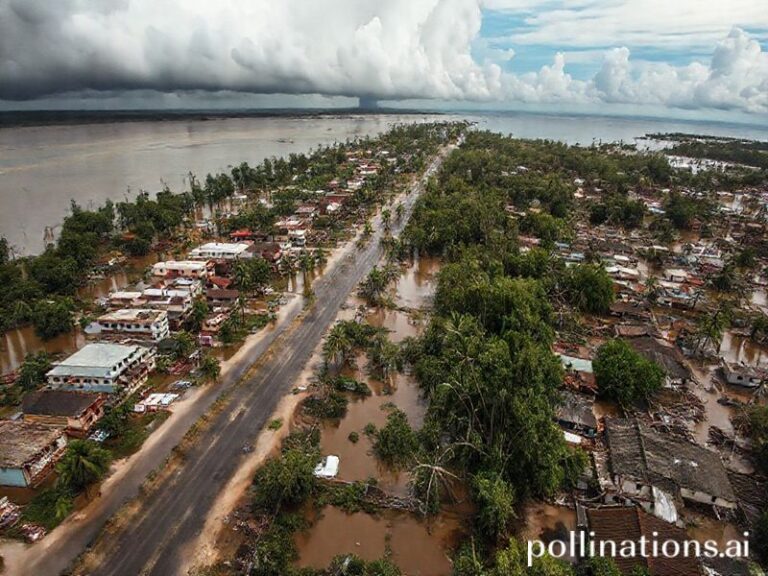Only Murders in the Building Season 5: How a Campy NY Murder Show Became the World’s Favorite Distraction from Actual Doom
Only Murders in the Building Season 5: The Arconia Goes Global and Humanity Learns Nothing
By the time the elevator cables snap in Episode 1, viewers from Lagos to Lima have already cracked the case on Reddit, TikTok, and whatever encrypted app is fashionable in Minsk this week. Season 5 of Hulu’s geriatric Scooby-Doo fever dream has, like every other American export, metastasized across the planet, proving that vicarious homicide is the one commodity still tariff-free. While the rest of the world negotiates cease-fires and wheat corridors, we huddle around our screens to watch three New York narcissists weaponize a true-crime podcast the way other nations deploy drones—except the collateral damage is mostly dignity.
The show’s premise—that amateur sleuths can solve murders faster than the NYPD—was once charmingly parochial. Now it’s state policy. Hungary’s government recently floated a “citizen detective initiative” (budget: one GoPro, unlimited nationalist zeal) and Brazil’s Rio police union cited the show when requesting ring-light subsidies. Even the Swiss, who usually prefer their murders centuries old and tastefully refrigerated, have launched an Arconia-themed escape room in a repurposed bank vault. The takeaway: if you’re going to be murdered, do it somewhere with good production values and a receptive streaming market.
Season 5 widens the lens, literally. An entire episode is filmed in a single take through the Arconia’s mail chute, a stunt so technically gratuitous that China’s CCTV reverse-engineered it for a documentary on postal efficiency. Meanwhile, the writers’ room has swapped its usual parody of Manhattan elitism for something more cosmopolitan: the victim this year is a Belgian blockchain diplomat who used NFTs to launder humanitarian aid, a plot twist so 2024 it comes with its own sanctions package. The UN issued a statement clarifying it does not, in fact, endorse non-fungible grain shipments; the showrunner replied with a GIF of Steve Martin shrugging.
International audiences have embraced the new flavor. In South Korea, where apartment-building murders are practically a national pastime, the show is marketed as “instructional content.” French critics praise its “existential huis-clos,” which sounds better than “three aging actors stuck in a hallway.” And in the U.K., where gentrification anxiety is a competitive sport, the Arconia has replaced Downton Abbey as the aspirational fixer-upper nobody can actually afford. One London borough even proposed a sister-building exchange program, until someone pointed out that swapping flats with people who keep dying violates at least three insurance clauses.
Beneath the whodunit froth, the season offers a bleak masterclass in late-capitalist entropy. The podcast-within-the-show now sells NFT evidence packs and limited-edition blood-spatter hoodies manufactured in Bangladeshi sweatshops that union reps describe as “basically The Rehearsal, but with more tetanus.” A subplot involves a deepfake Charles-Haden Savage hawking crypto in Tagalog, which turned out to be so convincing that Manila’s SEC issued a cease-and-desist against the fictional character. Somewhere, a bored teenager in Estonia is turning that bureaucratic letter into an NFT. The circle of life, sponsored by Squarespace.
Of course, every empire eventually declines; the only question is whether it’s murdered or merely canceled. By Episode 8, the show has devoured its own premise: the trio livestreams the finale on Twitch while the actual NYPD raids the set for an unrelated opioid ring run by the boom operator. The meta-commentary writes itself, though the writers still do, because residuals are forever. Viewers from Mexico City to Mumbai watch in synchronized schadenfreude, comforted by the universality of human folly and the reliability of Hulu’s autoplay.
In the end, Season 5 isn’t about who pushed whom down the dumbwaiter; it’s about the global supply chain of attention, the one resource still mined without regulation. We tune in not to solve a mystery, but to confirm our suspicion that everyone, everywhere, is equally capable of murder—especially with a podcast mic and a merch drop. As the credits roll, a QR code flashes onscreen linking to a real Arconia condo listing: $3.2 million, ghosts included. Somewhere in Kyiv, a refugee streams it on a cracked phone and laughs until the generator sputters out. The world keeps turning, and the building keeps killing. Tune in next season, assuming the grid holds.







